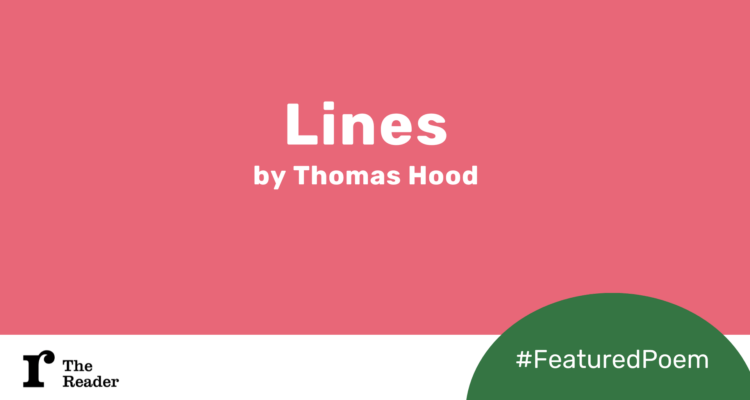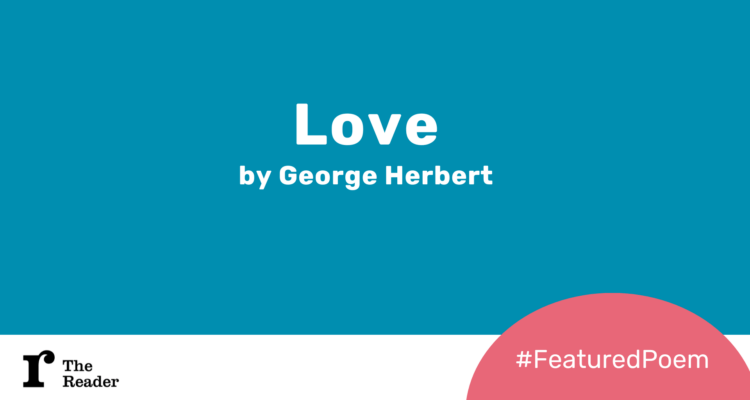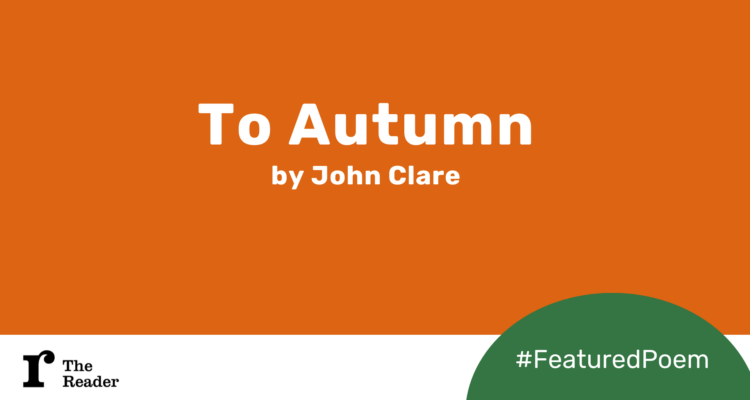Featured Poem: The Song of The Wandering Aengus by W.B. Yeats
This week's Featured Poem is The Song of The Wandering Aengus by W.B. Yeats and is brought to us by The Reader's Hub Leader for Somerset, Julie Gaukroger. The theme for our daily readings in February is 'Close to the Heart' and we hope the poetry, readings and recommendations we have chosen can help us stay connected over the coming weeks.
I went out to the hazel wood,
Because a fire was in my head,
And cut and peeled a hazel wand,
And hooked a berry to a thread;
And when white moths were on the wing,
And moth-like stars were flickering out,
I dropped the berry in a stream
And caught a little silver trout.
When I had laid it on the floor
I went to blow the fire a-flame,
But something rustled on the floor,
And someone called me by my name:
It had become a glimmering girl
With apple blossom in her hair
Who called me by my name and ran
And faded through the brightening air.
Though I am old with wandering
Through hollow lands and hilly lands,
I will find out where she has gone,
And kiss her lips and take her hands;
And walk among long dappled grass,
And pluck till time and times are done,
The silver apples of the moon,
The golden apples of the sun.
Source: The Wind Among the Reeds (1899)
This poem will be familiar to many. To me, it’s ‘magical’ both in the story it tells and its effect on the reader, a moment of true escapism. Years ago, when I came across it for the first time and before I read it, I was struck by the title. It sounded so mysterious. What was an Aengus? My first thought was that it might be some kind of invented mythical creature, a vagabond Jabberwock. Of course it’s simply a man’s name, the Irish version of Angus. Aengus turns out to be a significant person in Irish folklore, somewhere between a prince and a god. The poem is rooted in this world of Irish myth and legend. It’s a sort of lyrical fairy tale.
Yeats sets the scene with such clarity and simplicity. It’s in the hours before dawn. A young man sets out to the hazel wood “because a fire was in (his) head”. He is restless, seeking adventure, and sets out to catch a fish to cook on the fire. The linking of the white moths, with the flickering of the moth-white stars, the silver of the trout, create a shimmering feeling of unreality that builds to the magical moment when the trout transforms into a ‘glimmering girl’. As she runs away and “fade(s) into the brightening air”, the quest begins. Aengus wanders the world all his life in search of his perfect love, glimpsed for just one moment. This seems so poignant, to spend a life following an elusive dream instead of living in the here and now. Yet although the lines are drenched in his yearning for the girl, there is no sadness. He is undaunted, still certain that he will find her, and that they will be together forever, on some higher plane.
I will find out where she has gone,
And kiss her lips and take her hands;
I think it’s a great poem to read aloud. It has the mesmerising cadences of a song, and it has been set to music many times over the years. The last two lines have an especially hypnotic quality:
The silver apples of the moon,
The golden apples of the sun.
There is a strange irony to it, in that Aengus sets out as the fisherman, and hooks his trout. But in the end he is the one who is “caught” (whether by enchantment or by love, we don’t know) and drawn away towards the mystical world of his glimmering girl.
Curiously, when Yeats first published this poem, he gave it another title – “The Mad Song”. While this doesn’t make it a totally different poem, it certainly gives it a very different slant. If our wanderer had experienced madness, not magic, the “faerie” quality of the poem and some of its charm would somehow have been lost.
Take care, and stay safe everyone.
Share
Related Articles

Featured Poem: Lines by Thomas Hood
Our Featured Poem for February is 'Lines' by Thomas Hood, selected and read by Frances. Lines by Thomas Hood Let…

Featured Poem: Love by George Herbert
The Featured Poem for January is Love by George Herbert and is from the anthology Stressed, Unstressed and is read by…

Featured Poem: To Autumn
For November's Featured Poem, Julie is reading 'To Autumn' by John Clare To Autumn by John Clare Come, pensive…


